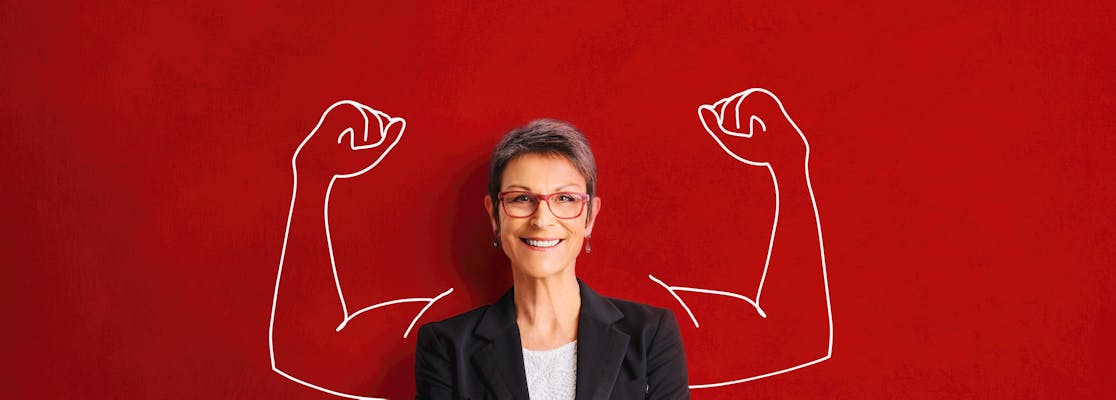Best Ways to Talk About Strengths and Weaknesses in an Interview
Updated November 20, 2023
- Why Do Interviewers Ask for a Strengths and Weaknesses List?
- Different Ways the Question Can Be Asked and Example Answers
empty
empty
empty
empty
empty
empty
empty
empty
- What Are Examples of Good Strengths?
- Tips for Picking a Good Strength for Interview
- Examples of a Good Weakness for Interview Preparation
- Tips for Picking a Good Weakness for Interview
- How to Talk About Your Strengths and Weaknesses: Tips
- Common Mistakes and How to Avoid Them
- Frequently Asked Questions
- Final Thoughts
The best weaknesses to mention during a job interview are:
- Self-criticism. “I can be hard on myself…”
- Introversion/extroversion. “I get energized or drained when…”
- Experience with a specific tool. “My technical ability with SPSS…”
- Public speaking/presentation skills. “I can get nervous speaking to large crowds…”
- Overthinking. “I get bogged down in details sometimes…”
Interviews can be hard – and one of the most important questions to nail is the one in which you have to lay out your strengths and weaknesses.
In this article we’ll go over the best traits to use and how to make sure you have evidence to back yourself up.
In addition, we’ll cover common mistakes in this area and how to avoid them when talking about your strengths and weaknesses.
Why Do Interviewers Ask for a Strengths and Weaknesses List?
In a job interview, they are trying to understand if you are a good fit for the company and if you bring a growth mindset.
In asking about strengths and weaknesses the interviewers are assessing your ability to self-regulate and if you are motivated to learn and grow.
The specific strengths and weaknesses you bring up in answering these questions will matter less than how you talk about them.
Are you honest and straightforward? Or do you blame others for things that might not go in your favor?
Your style in talking about yourself matters, so practice in advance and get fluent in talking about who you are and what you bring to the table.
Different Ways the Question Can Be Asked and Example Answers
Since the strengths/weaknesses topic is common, interviewers may try to come at the question in a less obvious way.
Here are some ways you might be asked:
Strengths-Focused Question: "What do you consider your best skills or attributes? What are your strengths?"
Example answer:
A strong attribute of mine is my attention to detail. An example of when I show this is when I have to write the annual reports each September.
I have trouble asking for help sometimes, but I’m working on this. Often I like to oversee every detail of a project but I know that delegation is a useful tool.
Behavioral Question: "Can you provide an example of a time when you utilized your strengths to achieve success?"
Example answer:
I enjoy working with people and having different personalities on my team. I like to draw out the best from each person and this was shown during the summer intern final project.
Scenario-Based or Situational Question: "How would you handle a situation that plays to your weaknesses?"
Example answer:
I have trouble saying no when asked to take on extra work. Sometimes this means I stay late to get work done, but this hesitance to say no does mean I get extra exposure and opportunities in the workplace that my peers don’t.
Comparative Question: "What do you believe sets you apart from other candidates in terms of strengths and weaknesses?"
Example answer:
I think I have a growth mindset so when I get some feedback over something I can improve I make that a priority. For example, when I was told that clients expected a more polished deck, I spent the weekend sharpening up my PowerPoint skills and researched different ways to impress clients with them.
Skill-Specific Question: "What technical skills do you excel in, and what areas do you find more challenging?"
Example answer:
I think my skills in Excel are strong but when I format reports, I think the structure is a little dense. I do need to think more about how to make these reports more readable and to break up the text into more digestible, bite-size pieces.
Growth or Personal Development Question: "Tell me about a weakness you've identified and how you've worked to overcome it."
Example answer:
I have a hard time completing projects and handing them over. Often I keep tweaking little details to get it even more polished. I have to acknowledge that getting to the stage where I’m happy with a third and final draft has been tricky – but my mentor has helped me with strategies to overcome that.
Teamwork Question: "How do you leverage your strengths to contribute effectively to a team, and how do you handle your weaknesses within a collaborative setting?"
Example answer:
In a team setting I’m someone who really likes to get involved. I am the person who checks in with each individual to see if they’re happy with their role. The flip side of that is that it takes a bit of time to get set up and get the ball rolling – but I do think it’s a fair compromise when the end project is a success.
Of course, if they ask you in the most direct way, it could just be, "Give me a strengths and weaknesses list for you".
In this case, a good example answer focuses on just two or three items, providing evidence and giving weight more to your strengths than your weaknesses.

What Are Examples of Good Strengths?
Some examples of good strengths for a job interview or key competencies you want to share are qualities like:
- Flexibility
- Creativity
- Focus
- Curiosity
- Leadership
As well as this typical strengths list, you also want to focus on the skills that are required in the job you are applying for.
Check the job description for key traits that are relevant to the role at hand.
For example, attention to detail would be particularly relevant for an engineering job.
In each of these examples, you want to provide evidence that backs up your claim.
It’s one of the biggest things interviewers want to see – the facts and figures that strengthen your case.
If you’re struggling with how to structure these answers, you can use the STAR method.
Tips for Picking a Good Strength for Interview
Keep it simple to start with; think about what is your strength and weakness if you could only pick one of each and build from there.
When you share your first strength, be specific.
So instead of saying your communication skills are generally amazing, you want to highlight a particular aspect – such as your public speaking ability, for instance. You can give an example of when you presented at a large conference to back this up with clear evidence.
Keeping your skills relevant to the job and company culture are important – you should pick a quality that is applicable to the job you’re applying for.
Don’t focus on creativity if it isn’t in the job description, for example. Being strategic and self-aware helps you pick the right strengths to talk about.
You want to reflect on your personal skills, talents and accomplishments before the interview day and collate a list – with plenty of evidence.
Examples of a Good Weakness for Interview Preparation
When picking weaknesses for job interview preparation, you want to make sure you are thoughtful about it. Some examples of acceptable weaknesses to share in a job interview are qualities like:
- Self-criticism – This one is a decent pick because it shows you are self-aware.
- Introversion/extroversion – Knowing your traits is helpful and neither of these are bad in themselves. Make sure you don’t pick one that would be an issue in the specific role though.
- Experience with a specific tool – Perhaps your Excel skills could do with brushing up. You can talk about your willingness to take a course or learn more in your own time.
- Public speaking/presentation skills – This is a common one that people struggle with and if it’s not specific to your job it won’t be a deal-breaker to bring up.
- Overthinking – This is a weakness that shows a cerebral mind – so long as you don’t make it sound like you’re crippled by anxiety.
A good weakness for interview preparation is one that you know you can eventually improve on. Most importantly – do not pick a weakness that is vital to the job in question.
For example, if you are applying for customer service, do not say that you get impatient with lots of questions.
Try and keep it varied too; in a job interview, any three weaknesses examples that you provide should not come off as identical.
For example, saying that you are an introvert, that you prefer working alone and that you don’t need supervision are all very similar. Try and mix things up by adding in items that are different from each other, so that it seems like you are more than one-dimensional.
Tips for Picking a Good Weakness for Interview
Focus on self-management when you are talking about yourself – a good weakness for interview prep is one that you are actively overcoming. You can talk about how you value improving yourself and your skill set to show that you have a growth mindset.
A willingness to learn is crucial – always talk about weaknesses in the context of absorbing skills from other people. If you have a mentor this is a great place to bring them up in the conversation and demonstrate your commitment to life-long learning.
When thinking about weaknesses for job interview preparation, it is essential that you choose items to talk about that are not critical to the job. You don’t want to be weak in situations where the job needs you to be strong.
How to Talk About Your Strengths and Weaknesses: Tips
Here are some more tips to help you when thinking about strengths and weaknesses to say in an interview:
Step 1. Be Specific (Quantify With Data if You Can) And Provide Examples
This is the biggest failure that people have in interviews – they waffle vaguely and don’t provide concrete evidence to back up their self-descriptors.
Step 2. Be Honest
Don’t list a strength that is actually not a strength, or say something is a weakness when you’re really good at it. Interviewers are skilled at spotting deception tells.
Step 3. Understand the Role
Make sure you pick strengths and weaknesses that won’t hinder your chances of getting the job. Pay attention to the information you have and do extra research.
Step 4. Avoid Cliches/Over-Generalization
Where you can, be authentic and speak from your own experiences. Tell a story that shows your personality while also making your point.
Step 5. Communicate With Confidence and Show Enthusiasm
If you use positive language, it demonstrates a belief in yourself and makes you more likable too.
Step 6. Practice Speaking About Yourself
Make lots of notes in advance and then distill them to key points.
Do mock interviews and film yourself too – you will eventually feel more comfortable doing the real ones when you see improvements.
Common Mistakes and How to Avoid Them
Here are some common mistakes – and strategies for overcoming these – when thinking about what weaknesses to say in an interview (as well as when talking about strengths):
- Lack of self-awareness – Often people don’t reflect on themselves; doing some questionnaires and learning about the science of personality can help you get to know who you are.
- Oversharing weaknesses – Revealing too much or sharing personal/irrelevant weaknesses may raise concerns about your interpersonal skills and how socially adept you are.
- Not providing examples – Just rattling off a strengths list and failing to provide evidence or examples won’t make you stand out as a good fit for the role. This is one that’s easily fixed – you always need to back up any claim you make.
- Overemphasizing weaknesses – Spending too much time discussing weaknesses and neglecting strengths is a mistake. Also if you focus solely on weaknesses without addressing strategies for improvement, then you’re missing an opportunity to show growth.
- Lack of preparation – Always think about how you can impress your interviewers – doing research and showing that you are enthusiastic about a role is important. This also applies to your self-awareness and ability to talk about what you bring to the table.
Frequently Asked Questions
Some examples of good strengths or key competencies to share in a job interview are qualities such as flexibility, creativity, focus, curiosity and leadership.
As well as these typical strengths, you also want to focus on the specific skills that are required in the job you are applying for.
Some examples of acceptable weaknesses to share in a job interview are qualities like self-criticism, introversion/extroversion, anxiety over public speaking/presentation skills or overthinking.
Make sure you don’t pick a weakness that would be an issue in the specific role you are applying for though.
Often people don’t reflect on themselves; doing some questionnaires and learning about the science of personality can help you get to know who you are.
You can also ask other people in your life, like friends or family, to help you work out what might be appropriate.
Colleagues, mentors and other people you have worked for previously can also help you with some self-awareness.
Look back over reviews or reports you’ve received in school, college or from other jobs too – they can help you get started.
You want to reflect on your personal strengths, skills, talents and accomplishments before the interview day and collate a list – with evidence.
Being self-aware helps you pick the right traits to talk about. When talking about weaknesses you can focus on qualities like self-criticism, introversion/extroversion, anxiety over public speaking/presentation skills or overthinking – so long as these aren’t crucial to the role you are applying for.
You can also pick things that are truly personal to you. For example, you may not be creative or great under pressure. Whenever you share a weakness, be sure to address how you are working on it to improve.
Many people struggle with public speaking and that is a common work weakness. Another might be an extreme introversion or extroversion (knowing your personality traits is helpful and neither of these are bad in themselves). Make sure you don’t pick one that would be an issue in the specific role though.
You can also talk about your lack of experience with a specific tool. Perhaps your Excel skills could do with brushing up. You can show your willingness to take a course on this topic or learn more in your own time to show a growth mindset.
When talking about weaknesses, be careful not to overshare. Revealing too much or sharing personal/irrelevant weaknesses may raise concerns about your interpersonal skills and how socially adept you are.
Try to regroup if you go too far, and talk about strengths or how you have qualities that counterbalance as well.
Don’t spend too much time discussing weaknesses – if you focus solely on weaknesses without addressing strategies for improvement, then you’re missing an opportunity to show growth.
In a sales job your ability to connect with people is key, so you don’t want to sound like you have any problems in the interpersonal arena.
More appropriate weaknesses could be that you like to work alone (oftentimes there aren’t many teamwork elements in sales jobs) or that you can hyperfocus on one thing.
You could say that you struggle with a work/life balance because you enjoy the hustle too much. That kind of approach would make you look like someone who really succeeds in making sales – with some weaknesses that don’t matter too much.
Instead of saying that you have no weaknesses, show some self-awareness and be authentic. We all have things that we don't do as well at as we'd want to.
Understand the role and speak with relation to it; be sure you pick strengths and weaknesses that won’t hinder your chances of getting the job.
The specific strengths and weaknesses you bring up in answering these questions will matter less than how you talk about them.
Some common mistakes in answering strengths and weaknesses questions are:
- Lack of self-awareness
- Oversharing weaknesses
- Overemphasizing weaknesses. Also if you focus solely on weaknesses without addressing strategies for improvement, then you’re missing an opportunity to show growth.
- Lack of preparation. Failing to provide evidence or examples. This one is easily fixed – you always need to back up any claim you make.
In a job interview, they are trying to understand if you are a good fit for the company and if you bring a growth mindset.
If you come up with fake weaknesses then you are doing yourself a disservice – and the company too.
We are all complex individuals and there are certainly things you are less good at than the average person, so spend some time thinking about where your weaknesses are.
This could be in the creativity arena – or maybe you don’t pay great attention to detail. Perhaps you’re a people person and don’t enjoy statistics. Whatever it is, be authentic about who you are and what you bring to the table.
Be honest if you are asked about yourself. Don’t list a strength that is actually not a strength, or say something is a weakness when you’re really good at it.
Interviewers are skilled at spotting deception tells. Are you honest and straightforward? Or do you blame others for things that might not go in your favor? Your style in talking about yourself matters, so practice in advance and get fluent in talking about who you are and what you can offer the company.
In asking about strengths and weaknesses the interviewers are assessing your ability to self-regulate and if you are motivated to learn and grow.
If you brag, then you come across as someone who isn’t self-aware. Where you can, be authentic and speak from your own experiences. Tell a story that shows your personality as well as makes your point.
You can communicate with confidence and show enthusiasm without bragging. Be factual but do use positive language – it demonstrates a belief in yourself and makes you more likable too.
When you share your strengths, be specific instead of vague. So instead of saying your communication skills are generally amazing, you want to highlight a particular aspect – such as your public speaking ability, for instance. You can give an example of when you presented at a large conference to back this up with clear evidence.
In each of your strengths and weakness examples, you want to provide evidence that backs up your claim. It’s one of the biggest things interviewers want to see – the facts and figures that strengthen your case.
If you’re struggling with how to structure these answers, you can use the STAR method.
Final Thoughts
In summary, the ability to talk about yourself with clarity and awareness is crucial in a job interview.
Practicing is important, especially if you’re nervous or don’t have a lot of experience with sharing your skills and traits. When thinking about weaknesses for job interview preparation, make sure you are strategic.
When you want to impress, picking strengths and weaknesses based on the role and job description can help you hit the nail on the head.
You should always be authentic and show self-awareness when talking about yourself – providing evidence to back up your claims is a great way to do this.





